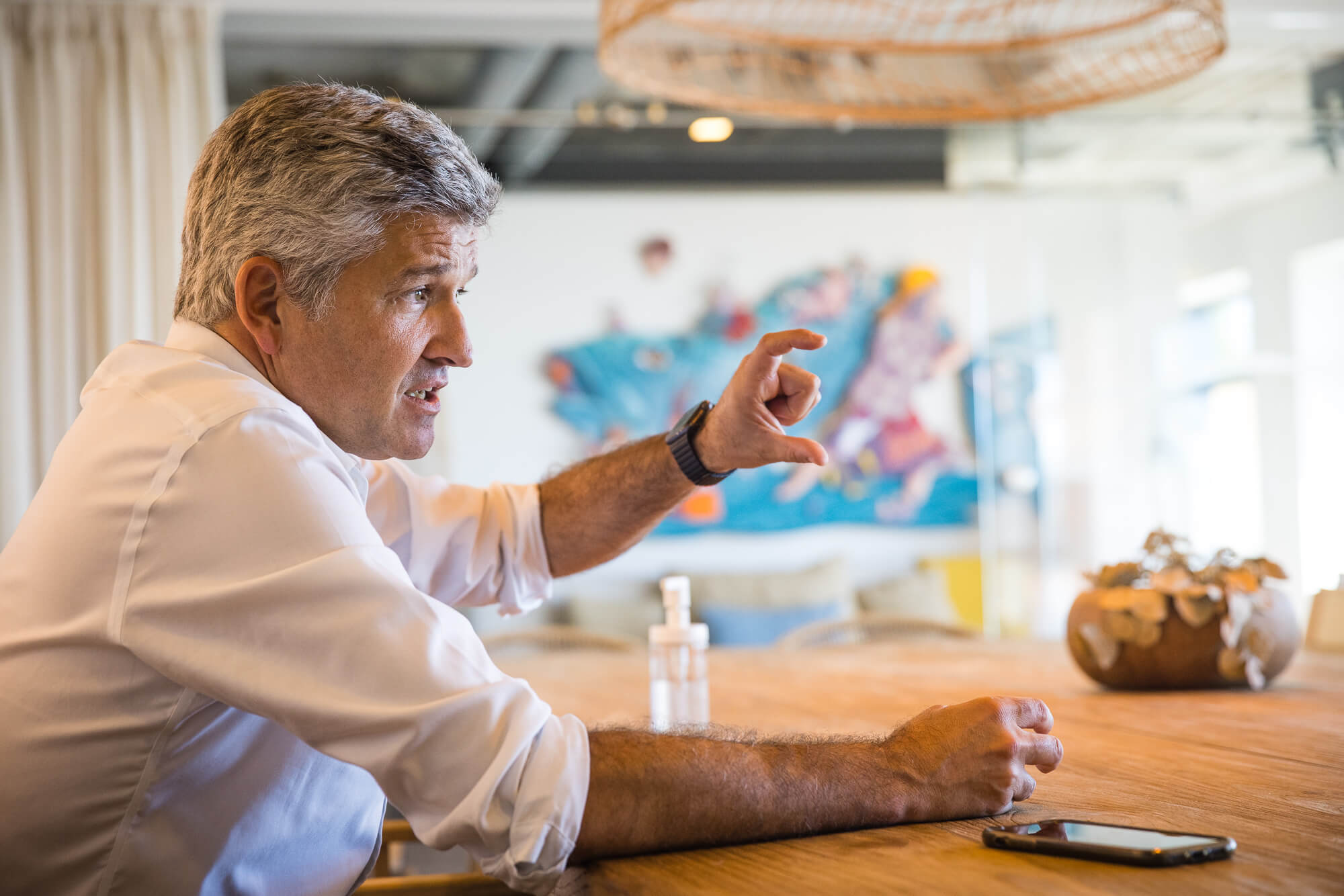If tourism suffered the most in this year and a half of Covid, it will be the one that will gain the most. “Revenge tourism” and the desire to travel is much greater than what we had before… Traveling for pleasure is the desire with more references that I heard in all interactions for “as soon as you can”.
Of course, business trips will not return to the same level, but Portugal, after all, apart from some congresses, has always been more a leisure destination than a business destination. That’s why we are especially well-positioned to emerge as an excellent “revenge” destination.
But to sustainably win the next decade in tourism, market players must assimilate three important perspectives in their businesses as fundamental activities: a) Absolute focus on the Customer Experience b) Customer-Centered Innovation c) Managing the gatekeepers that is, digital platforms as the primary point of attracting Customers. Let’s go at three.
Absolute focus on the Customer Experience. This means that each operator has to empathically experience every step of the customer’s journey, put himself at his feet, and assess how he removes all the friction or pain points from that journey. And of course,´ innovating with this process. Quickly implementing continuous improvement processes for your products. This agility and “improved” customer experience brings positive network effects on the growth of each business and “natural” marketing of each product.
Customer-centric innovation, to continually discover what each customer needs unknown, and which customer groups we don’t serve today and can move on to. In this way, with this focus on the unserved customer, and on unknown needs, incremental innovations are developed that always allow for a better experience. And of course, always be ahead of our competition.
And finally, understanding that the dominance of digital platforms is, today, total and impossible to avoid, which means that we either become a (difficult) platform, or we use the platforms that already dominate all tourism, in the best possible way. Airbnb, Booking, Rentalcars, Expedia, Tripadvisor, Trivago, among many others, are the guardians of the customer, and with so many network effects in their favor, they will increasingly detain the relationship with them, as every business in this sector is important to be before more, an excellent manager of these platforms. Their effective management is thus the third priority of each operator and/or product on the market.
If creating a platform is difficult, continuously innovating is much less. It’s just the mindset of assessing what pain points or friction there are, and without hesitating to resolve them, or continually improve. That perspective is central to improving competitiveness. And if before Covid this was imperative. In the next decade, with the consumer’s revenge. The raw nerves. Exemplary service and an incredible experience will be even more important. This customer experience and continuous innovation are the only way that guarantees a competitive sector with high added value.
What we’ve seen in other markets is that the marketing, sales, and customer service departments will be just Customer Experience departments. Companies more exposed to digital, and that were born in digital, are already there, and this has to happen quickly in tourism companies. There is no marketing, no sales, no after-sales. There is only customer experience. In an extraordinary moment from the beginning of the journey to the memory that this journey left behind. Coordinates with Service Design at the heart of the management of this experience.
Let us always remember that in tourism, the journey starts months before and never ends. For the experience, the memories, the frames of remembrance, if we have had a good experience of the beginning of the dream, the experience of what reality is, the memory of what we live, are all part of this journey.
These memories are the anticipated, the realized, and the remembered usefulness. In pre-purchase, purchase, and post-purchase. It is in these stages that we have to tap into a fluid, continuous, and unique customer experience to have an advantage in marketing and in generating value from what we do.
In the end, as with everything else, the three virtues of marketing, and or of a business, are always the most important: How is what we do different from the competition? How do we make it more relevant to the Customer? And how we make our product more defensible in the market, thus increasing our sustainability as a business.
The three virtues of a business are always guaranteed if we maintain a customer-centric innovation process. Relentlessly looking for unknown needs of customers, and customers to serve. And where do we have pain points in the journey how do we remove them, and how do we optimally manage the platforms that bring these customers to us?
The future is one of constant innovation, in building a customer experience that only the Portuguese know how to do. That of empathy, humility, and gratitude.
In practice, this constant innovation is nothing more than “hospitality”. In other words, they do everything to make someone who we receive feel welcome, special, and appreciated. In the end, Portugal does it with open arms. This is our competitive advantage just has to be constant innovation in hospitality.
Opinion article originally published in Publituris.
